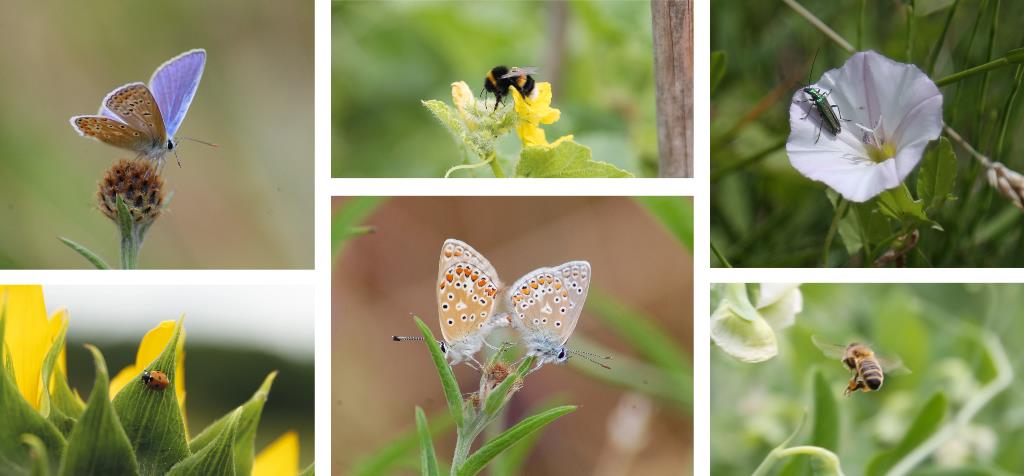Ed Ayton, Brand Assistant at Abel & Cole, shares his fears for the world’s insect populations and encourages us all to choose our food with care.
Farming for the future of insects

It might be easy to feel powerless in the face of today's stark headlines about the health of the ecosystems we rely on, but buying carefully-sourced, efficiently-transported organic food is a big difference everyone can begin making tomorrow.
Over the last 50 years, faced with a growing population and incentives to produce more food, intensification of our farming systems has put increasing pressure on local ecosystems. Urbanisation, climate change and invasive species have all played major parts in the loss of our wildlife's habitats, but (as reviews highlight) it is the spread of intensive farming practices that is causing the most damage. As studies suggest, the routine and liberal use of chemical pesticides and fertilisers, the clearing of land and hedges and their replacement with monocultures are actions that must be changed if we're to reverse this decline.
But we cannot rely on legislation alone to protect our wildlife from destructive practices. For example, despite years of the scientific community waving red flags over their dangers to ecosystems, the UK government only suspended the use of neonicotinoid pesticides in 2018. Unsurprisingly, as soon as the ban was underway, pesticide manufacturers were already marketing new chemicals as the next generation of effective yet safe treatments. After 50 years of being stuck in the chemical cycle however, thankfully many farmers are now realising not only can the cycle be broken, it needs to be.
Critics would argue that turning our food production organic would take more land, further driving habitat loss. Thankfully there's now a wealth of evidence to suggest the contrary. With investment and public interest, coupled with a change in our diets, land that's farmed organically can feed a growing population. Furthermore, with its emphasis on replenishing soil fertility, it could do so for years to come. Our organic farmers also have a vested interest in encouraging biodiversity on their land, taking advantage of 'ecosystem services'. From pollinating crops to controlling pests, wildlife can be very useful and takes a fraction of the energy to encourage as it does to replace.
There are many non-organic farmers doing great things for biodiversity, but without knowing them personally or background-checking every product we buy it could be tricky deciphering who actually farms what they preach. But studies consistently show that organic farming on the whole is better for biodiversity, with on average 50% more plant, insect and bird life than non-organic farms. There are a few reasons for this, but it's largely thanks to the restriction on the use of pesticides. After Keith Abel discovered the liberal use of chemicals on the produce he was buying, and knowing organic farming offered a much more environmentally-friendly option, Abel & Cole as we know it today was born. Our farmers don’t just grow organic food, they grow food with care, and that’s why we’ve worked with some of them for 20 years and counting. In a world where our food is pushing wildlife out, we’re working with the farmers letting it back in.


